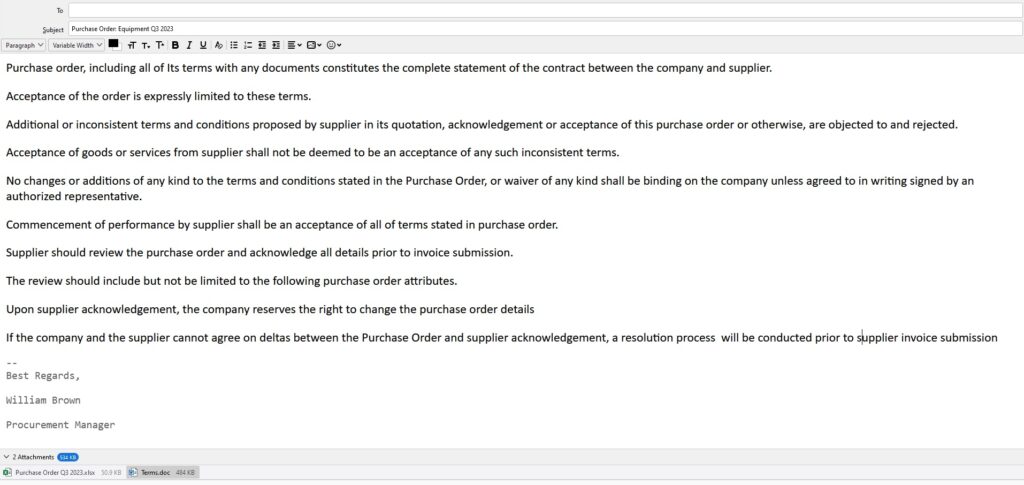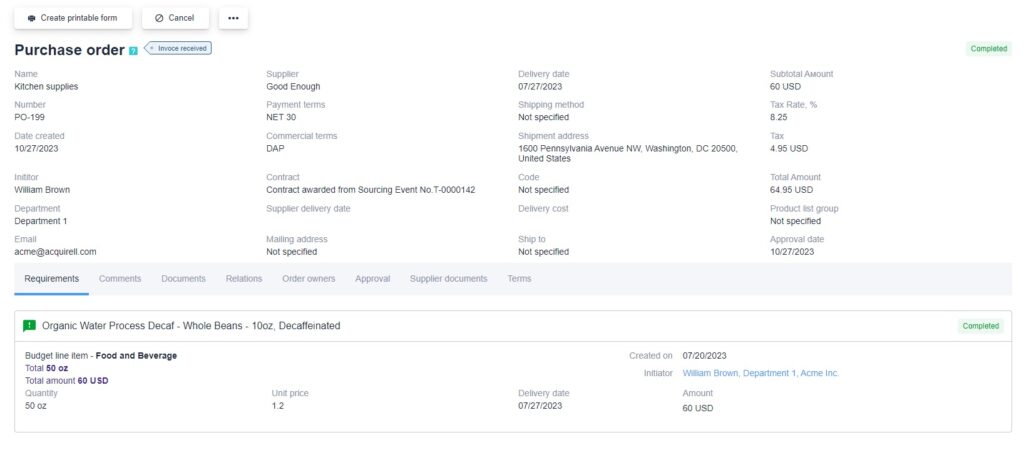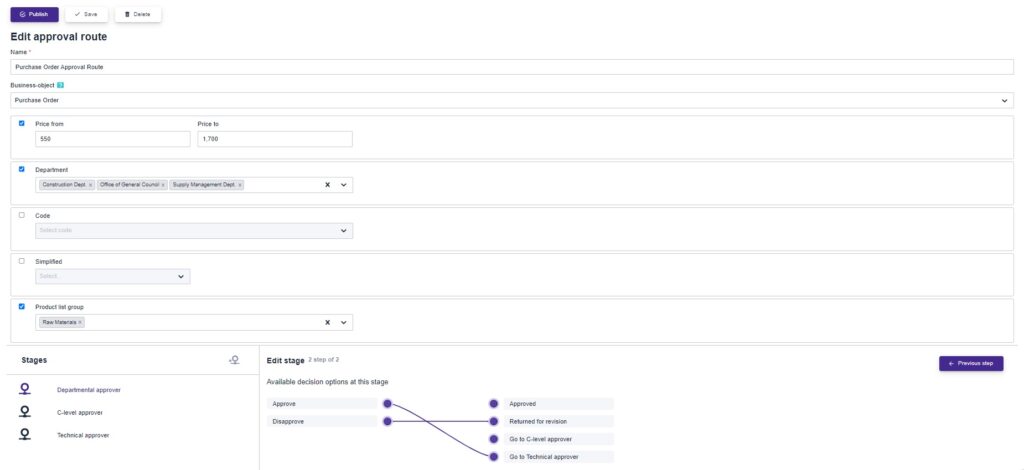Home » Notes & Thoughts » Moving Purchase Order management from Emails to E-Procurement Software

In an era where efficiency and productivity reign supreme, organizations are increasingly shifting their procurement processes from traditional email-based systems to cutting-edge E-Procurement Software solutions. The benefits of this transition are far-reaching, with improved accuracy, enhanced collaboration, and streamlined procurement operations being just a few of the advantages. Today more businesses are making the switch from email-based purchase orders to procurement software which transforms the way companies manage their procurement processes.
While email is a versatile communication tool, it falls short of effectively managing the complex processes involved in procurement, particularly when it comes to purchase orders.

Managing purchase orders via email presents certain challenges. Communication may become scattered and disorganized, making it difficult to track the status of various orders, communicate changes, or manage document attachments effectively. Purchase orders can get lost in email due to the sheer volume of messages that individuals receive daily. They may be buried within a crowded inbox, making it challenging to locate specific orders quickly.
At the same time version control problems often arise when managing purchase orders via email. Multiple versions of purchase orders can circulate in email threads as changes and updates are made. This can lead to confusion about which version is the most current, potentially resulting in discrepancies or missed amendments.
In addition, ensuring compliance when managing purchase orders via email may be impossible due to several inherent challenges. Email communications are susceptible to human error, making it difficult to guarantee that every purchase order will consistently meet all compliance requirements. Additionally, email security is not foolproof, and there is always a risk of data breaches or unauthorized access to sensitive information.
The shift from email-based purchase orders to E-Procurement Software provides a holistic solution that addresses the limitations of traditional methods and introduces a range of benefits:

For example, Acquirell, all-in-one procurement automation software centralizes all purchase orders, and related documents from requisitions to contracts. Such an approach provides easy access to all relevant parties, streamlining document management, and ensuring data accuracy.

With procurement software, organizations can establish automated workflows for purchase orders, ensuring seamless approval processes, reducing manual work, and accelerating procurement operations.

Real-time tracking and reporting capabilities in procurement software provide detailed visibility into the execution of purchase orders, and the status of purchase orders, helping organizations stay informed and proactive.
The transition from email-based purchase orders to procurement software represents a significant step toward modernizing and optimizing procurement processes. By embracing this transformation, organizations can achieve centralized and efficient procurement operations, reduce errors, reduce unnecessary expenses in purchasing, enhance collaboration, ensure data security, and ultimately drive greater value for their business.
E-procurement software is more than just a trend, it’s a strategic move that enables companies to remain competitive in today’s fast-paced business environment. Don’t miss out on the benefits of modern procurement – make the switch from email to procurement software and transform the way you manage your purchase orders.
Book a demo to see how Acquirell can streamline your procurement.
To request a demo, please complete this form. Our team will reach out to you shortly.
| Cookie | Duration | Description |
|---|---|---|
| cookielawinfo-checkbox-analytics | 11 months | This cookie is set by GDPR Cookie Consent plugin. The cookie is used to store the user consent for the cookies in the category "Analytics". |
| cookielawinfo-checkbox-functional | 11 months | The cookie is set by GDPR cookie consent to record the user consent for the cookies in the category "Functional". |
| cookielawinfo-checkbox-necessary | 11 months | This cookie is set by GDPR Cookie Consent plugin. The cookies is used to store the user consent for the cookies in the category "Necessary". |
| cookielawinfo-checkbox-others | 11 months | This cookie is set by GDPR Cookie Consent plugin. The cookie is used to store the user consent for the cookies in the category "Other. |
| cookielawinfo-checkbox-performance | 11 months | This cookie is set by GDPR Cookie Consent plugin. The cookie is used to store the user consent for the cookies in the category "Performance". |
| viewed_cookie_policy | 11 months | The cookie is set by the GDPR Cookie Consent plugin and is used to store whether or not user has consented to the use of cookies. It does not store any personal data. |